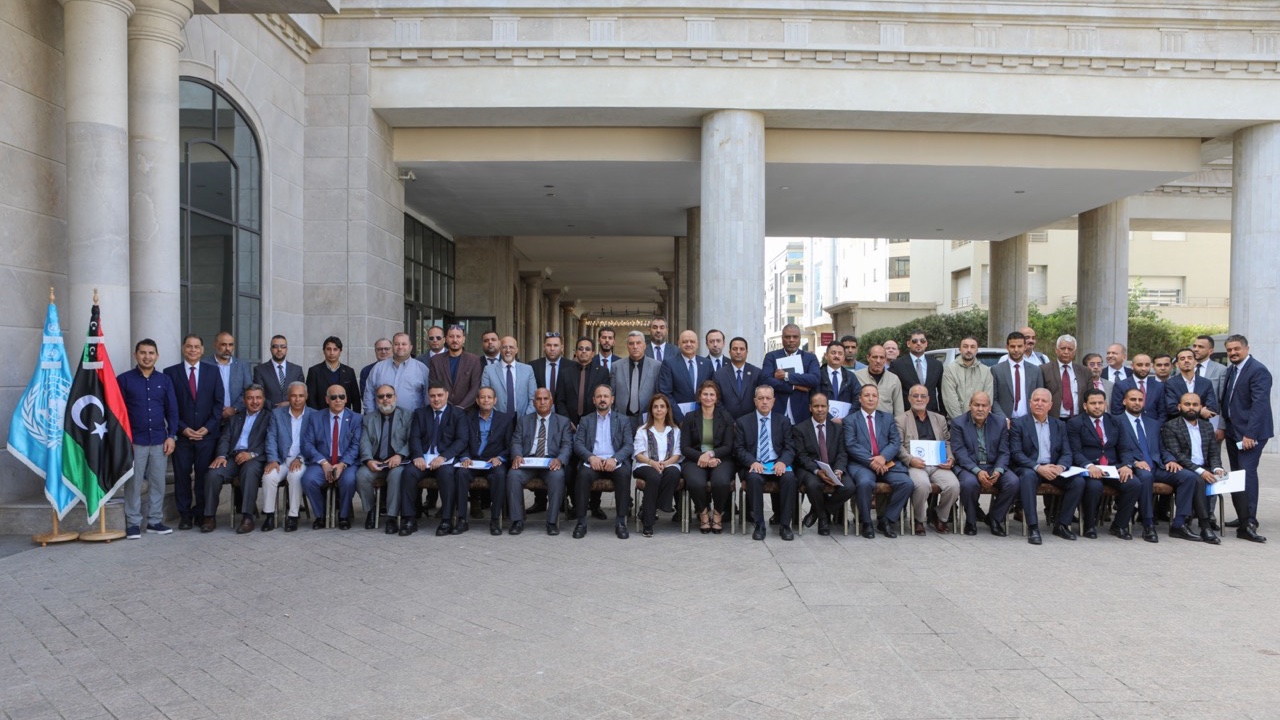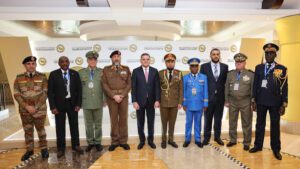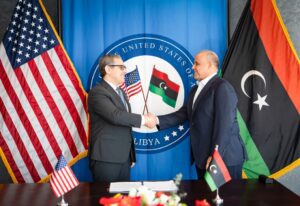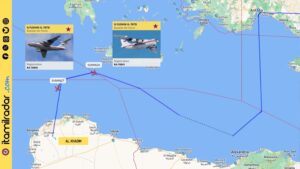The United Nations Support Mission in Libya (UNSMIL) organized a workshop in Tunis and it concluded last Wednesday with recommendations aimed at activating the Code of Conduct for Military and Security Personnel, enhancing joint security plans, coordinating border security procedures, and combating violent extremism and illegal immigration.
UNSMIL said in a statement on Saturday that over two days, representatives from Libya’s military and security sectors, along with officials from relevant ministries and institutions, discussed mechanisms to implement the Code of Conduct. In a series of side meetings facilitated by UNSMIL, military and security officials explored ways to coordinate efforts and improve the effectiveness of security plans on the ground.
“The workshop and side meetings resulted in two sets of recommendations. The first set emphasized establishing a mechanism for the optimal implementation of the Code of Conduct. Participants called for coordination among military, security, and police units to develop a comprehensive training program to convey the Code’s content, provisions, and objectives to target groups.” It said.
“They also recommended launching awareness campaigns through media outlets to publicize the Code’s provisions. Additionally, participants stressed the importance of including women in the implementation process, leveraging international experiences, and establishing a monitoring mechanism for adherence to the Code.” UNSMIL added.
The second set of recommendations, emanating from the side meetings, focused on border security, including efforts to combat violent extremism, organized crime, and irregular migration. Participants agreed on the need for continued discussions to develop a joint coordination mechanism among all parties involved in implementing security plans related to border issues, terrorism, and migration.
They highlighted the insufficient resources allocated to border guards and agreed to assess these needs at the next follow-up meeting. Participants called on UNSMIL to facilitate partnerships with stakeholders, particularly Italy and the European Union, to support Libyan border security efforts. They also requested technical assistance from UNSMIL to overcome obstacles in acquiring the necessary equipment for border security.
Furthermore, they emphasized the need for neighbouring countries to adhere to signed agreements, particularly the Quadripartite Security Agreement, and recommended completing the composition of the National Technical Committee responsible for maintaining border markers.
Additional recommendations from the side meetings included increasing focus on border populations through development projects and enhancing security and stability in their regions. Participants also called for capacity building for entities responsible for border security, combating violent extremism, and irregular migration, particularly in keeping pace with advancements in artificial intelligence and creating opportunities for experience exchange with other countries.
Participants agreed to conduct studies on smuggling networks, human trafficking, and transnational organized crime. They also decided to hold a follow-up meeting as soon as possible in Ghadames, with technical support from UNSMIL, to finalize the coordination mechanism between military and security institutions.





